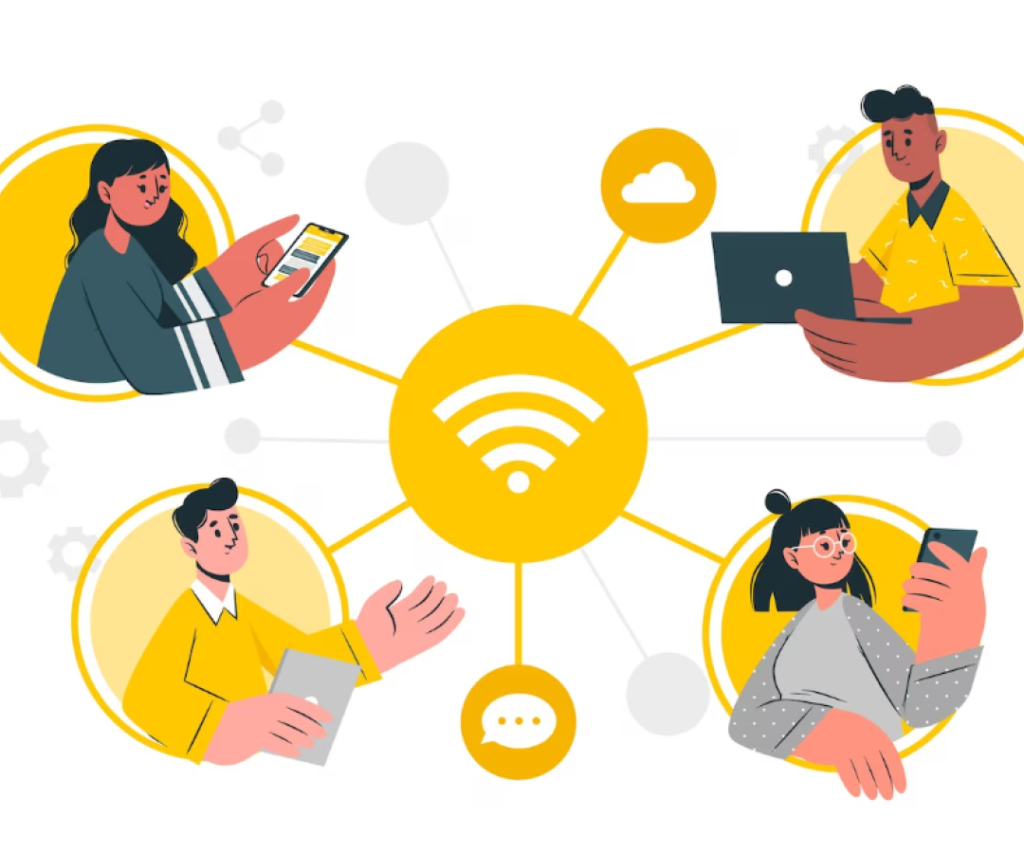Introduction
The internet, a transformative force in the modern era, has not only revolutionized communication and information exchange but has also become a linchpin for global economic development. This post delves into the multifaceted ways in which the internet plays a pivotal role in fostering economic growth on a global scale.

Connectivity and Accessibility
The internet has dismantled geographical barriers, providing unprecedented connectivity and accessibility. In developing regions, where traditional infrastructure might be lacking, the Internet serves as a gateway to information, education, and markets. This democratization of access empowers individuals and businesses, creating opportunities for participation in the global economy.
E-Commerce and Digital Marketplaces
The rise of e-commerce is a testament to the Internet’s impact on global trade. Online platforms and digital marketplaces facilitate cross-border transactions, enabling businesses of all sizes to reach a global audience. This globalization of commerce has not only expanded market opportunities for businesses but has also given consumers access to a diverse array of products and services.
Small and Medium Enterprises (SMEs)
The Internet has been a game-changer for small and medium enterprises (SMEs). These businesses, often lacking the resources for extensive physical infrastructure, can establish an online presence, reach customers globally, and engage in e-commerce. The internet levels the playing field, allowing SMEs to compete on an international scale and fueling entrepreneurship and innovation.
Job Creation and Remote Work
The internet has redefined traditional work models, giving rise to remote work opportunities. This shift has the potential to reduce unemployment rates by connecting job seekers with opportunities across borders. Remote work not only provides access to a global talent pool but also fosters economic inclusivity by enabling individuals in remote or underserved areas to participate in the workforce.
Education and Skill Development
The internet is a vast repository of knowledge, offering educational resources and skill development opportunities. Online courses, tutorials, and e-learning platforms empower individuals to acquire new skills, making education more accessible. This democratization of education contributes to building a skilled workforce, essential for driving innovation and economic growth.
Innovation and Entrepreneurship
The Internet catalyzes innovation and entrepreneurship. Online collaboration, crowdfunding, and access to global markets create an environment conducive to startups and creative ventures. Entrepreneurs can leverage the internet to test ideas, connect with mentors, and access funding, fostering a culture of innovation that propels economic development.
Financial Inclusion
Internet-based financial services have played a crucial role in promoting financial inclusion. Online banking, mobile payments, and digital currencies provide access to financial services for individuals who were previously excluded from the formal banking sector. This inclusion contributes to economic stability and empowers individuals and businesses to participate more actively in economic activities.
Big Data and Analytics
The internet generates an immense volume of data, and big data analytics play a pivotal role in economic development. Businesses and governments can harness data-driven insights to make informed decisions, optimize processes, and identify market trends. This data-driven approach enhances efficiency and competitiveness across various sectors.
Global Collaboration and Partnerships
The Internet facilitates global collaboration and partnerships between businesses, governments, and organizations. Cross-border collaborations lead to the exchange of ideas, technologies, and resources, fostering innovation and driving economic progress. Transitioning from this collaborative exchange, the ability to connect and collaborate globally not only opens doors to synergies but also holds the potential to address complex challenges. This global interconnectedness becomes a driving force for sustainable development, where shared knowledge and collaborative efforts create a foundation for addressing not only economic but also social and environmental challenges on a global scale. The continuous exchange of ideas and resources through global collaboration emerges as a transformative agent, contributing to a more interconnected and sustainable future.
Digital Infrastructure Development
The internet acts as a catalyst for the development of digital infrastructure. Investments in broadband connectivity, 5G technology, and other digital infrastructure components are essential for ensuring widespread internet access. This pivotal role extends beyond mere access; it marks a significant shift towards enhanced capabilities and global connectivity. Governments and businesses worldwide recognize the strategic importance of robust digital infrastructure in driving economic growth and competitiveness. This recognition not only emphasizes the immediate need for investment but also underscores the long-term impact on innovation and global collaboration. In essence, the evolution of digital infrastructure is seen as a cornerstone for shaping a future where seamless connectivity fosters technological advancements, economic resilience, and international competitiveness.
Challenges and Considerations
Despite its transformative impact, the Internet’s role in global economic development is not without challenges. Issues such as the digital divide, cybersecurity threats, and concerns about data privacy need to be addressed. Additionally, ensuring equitable access to the benefits of the Internet remains a priority to avoid exacerbating existing socioeconomic disparities.
Conclusion
In conclusion, the Internet stands as a cornerstone of global economic development, weaving a digital fabric that connects economies, empowers individuals, and drives innovation. From fostering e-commerce and entrepreneurship to promoting financial inclusion and facilitating global collaboration, the Internet’s impact is profound. As we navigate the digital age, strategic investments, inclusive policies, and international cooperation are essential to harness the full potential of the Internet for sustainable and inclusive economic development on a global scale.


